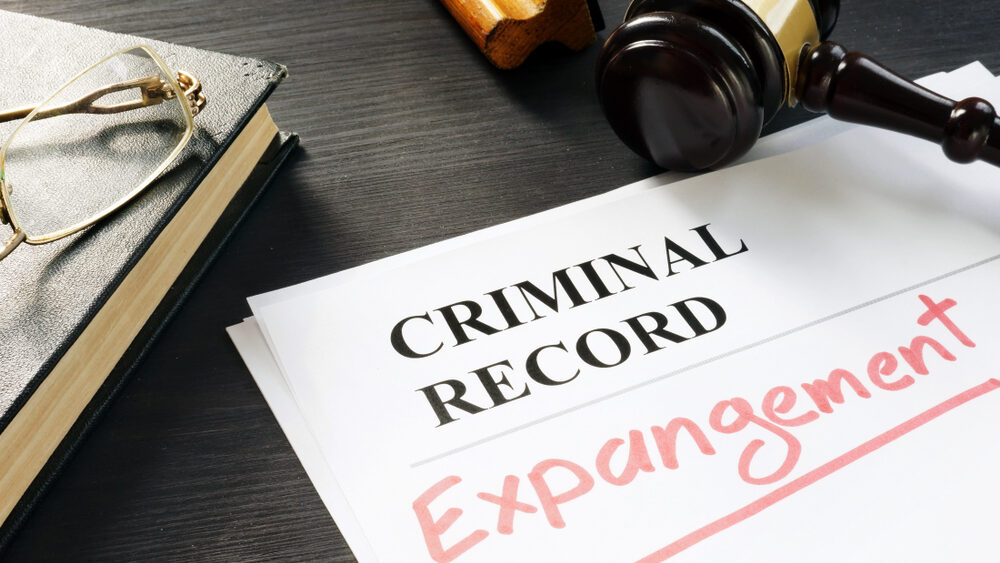Expungement: How and Why It’s Important
May 15, 2024

You May Need to Have Your Record Expunged and Not Even Know It
Have you ever wondered why you didn’t get that job you were sure you were going to get? Did you know that a dismissed charge still stays on your record until it is legally expunged? Although your charge may have been dismissed, the fact that you were charged remains a matter of public record. Why deal with embarrassing questions at a job interview when you can remove any hint of the incident’s existence through expungement?
If you have had even the slightest brush with the criminal justice system, you need to ensure that, if possible, any evidence of that encounter is eliminated. Many people assume that because a case was dismissed, it automatically goes away. Not true!
What Is Expungement?
Expungement is the process of legally removing and isolating records related to a person’s criminal charges and court proceedings. This includes records from courts, detention centers, law enforcement agencies, and other criminal justice entities. Essentially, it’s as if the incident never occurred in the eyes of the law, making it inaccessible to the public, including potential employers.
Know What Can Be Expunged
The types of records that can be expunged include:
- Complaints
- Warrants
- Arrests
- Commitments
- Processing records
- Fingerprints
- Photographs
- Index cards
- Rap sheets
- Judicial docket records
Benefits of Expungement
The effect of an expungement is that the event or document is deemed by law not to have occurred. It is not a matter of public record that can be accessed by employers or the curious. When records are extracted or isolated, they are not destroyed but access is strictly limited for use by the courts, prosecutors, probation officers, and department of corrections staff. Thus, access to records is limited but not in ways that tie the hands of law enforcement.
A successful applicant for expungement does not have to answer affirmatively about expunged criminal records. Prior arrests, convictions, and related proceedings shall be deemed not to have occurred.
Important Facts About Expungement
- A person whose conviction was expunged may possess a firearm.
- An expunged domestic violence conviction allows a person applying for gun permits to have the application considered as if the offense never occurred.
- A successful applicant for expungement does not have to answer affirmatively about expunged criminal records. Prior arrests, convictions, and related proceedings shall be deemed not to have occurred.
Determine Eligibility
Eligibility for expungement varies based on the type of conviction:
- Indictable Convictions: Can be expunged after 5 or 10 years, depending on circumstances; not available if there has been another crime or two offenses either before or after (excluding some serious violent crimes).
- Disorderly Person Offenses and Petty Disorderly Person Offenses: Can be expunged after 5 years, expungement is not available if more than two offenses or a crime either before or after.
- Municipal Ordinances: Can be expunged after 2 years; not available if convicted of one crime or two offenses.
- Drug Offense Convictions for Young Offenders: Certain juvenile drug charges can be expunged after 1 year; expungement not available for serious drug distribution, if on parole or probation, or previously accepted into supervisory treatment or other diversion.
- Arrests Not Resulting in Conviction: May be expunged immediately or six months after a diversionary program. Expungement is not available for dismissals, discharges, or acquittals based on insanity or mental incapacity.
Simplified Filing Process
As of 2024, New Jersey has simplified the expungement filing process:
- You may file an expungement application in the county where you reside or where any of your convictions were heard.
- Relaxed waiting periods for payment of fines extend to Clean Slate petitions, allowing more flexibility for those unable to promptly pay fines.
- Municipal ordinance violations can now be explicitly included in Clean Slate petitions.
- Non-expungeable convictions no longer bar the expungement of other convictions.
Contact The Law Office of John B. Brennan Today For a Free Consultation
At The Law Office of John B. Brennan, we understand the impact a criminal record can have on your life. Our dedicated team specializes in criminal defense and expungement services, providing personalized legal support to help you clear your record and move forward with confidence. Whether it’s navigating the complexities of expungement eligibility or simplifying the filing process, we are committed to delivering exceptional legal services tailored to your unique needs.
By choosing our firm, you benefit from years of expertise, a deep understanding of New Jersey expungement laws, and a compassionate approach to your legal challenges. Don’t let a past mistake hold you back. Reach out to us today and take the first step toward a brighter future.
